You may have seen a service dog doing its job. Rescue dogs aid search parties in times of calamities or trouble while service dogs help disabled people in their daily tasks. The chances are high that you have seen some of these dogs, if not all. Various dog breeds help humans, and they do make good pets.
What is a Service Dog?
A service dog is trained to do specific tasks for individual humans that have disabilities. The dog assists a disabled person for tasks that he or she can't do without help. The dog is either a purebred or mixed-breed though purebreds are mostly used for such work.
Each dog breed used in assisting people with disabilities has a certain personality, physiques, and traits that make them easy to learn as well as do their tasks right.
The various tasks that these range service dog from helping their owners walk deal with emotional pain and check blood sugar levels. As you can see, these dogs are blessings to disable persons and makes their lives easier.
MUST READ: 7 EFFECTIVE DOG TRAINING METHODS
Types of Service Dog Breeds
There are seven different varieties of service dogs, and each of them has different work and use. The terms used on these dogs are interchangeable when it comes to naming, but it is evident that each of them has a different purpose.
Benefits of Having Service Dogs
Service dogs provide a big help to tasks and jobs that humans can’t do on their own, especially if they have disabilities. As a result, dogs provide emotional and physical benefits. Some examples below:
Emotional Benefits
Physical Benefits
Things To Consider When Choosing Service Dogs
Selecting the right kind of service dogs for a certain job is essential so that there would be no problems in the long-term. Some traits to bear in mind:
Big and tough
Large, medium, and small size dog breeds can be of service to people with a handicap, but larger dogs tend to be the best. Larger breeds are capable of performing more tasks, hence the preference for them. Also, a large breed is well-suited as a military or police dog where its size is a big asset. These traits are also requirements for dogs that will work in search and rescue as well as military or police work.
Being a good learner and easy to train
Training is a mandatory exercise when it comes to making your canine excel in its job. Intelligent dogs can easily pick up your commands and do them. Since training can be vigorous, the canine must also have the eagerness to learn from you in order to be an effective service dog. Also, one thing that you must bear in mind is that dog training isn’t just a matter of being able to train, but also some hard work and positive encouragement.
Having a calm, gentle and focused mind
Easily distracted is a con when it comes to training service dogs. Such an easily distracted and overexcited nature means that the canine will perform poorly at its given tasks. Having a gentle nature is also important since support dogs may unintentionally harm their owners instead. The best service dog breeds have the kind of focused, calm, and gentle personalities that makes them effective.
Neat and tidy attitude
The dog that tends to drool a lot and shed hair almost everywhere is going to strain a disabled person’s workload. The point of having a service dog is to reduce the jobs you are doing instead of adding more of them. Cleaning those drool and hair is not going to fun in the long run. Not mention that you might be allergic to the shed hair. So you should get a dog breed that is properly trained and shed little hair.
#1. Standard Poodle
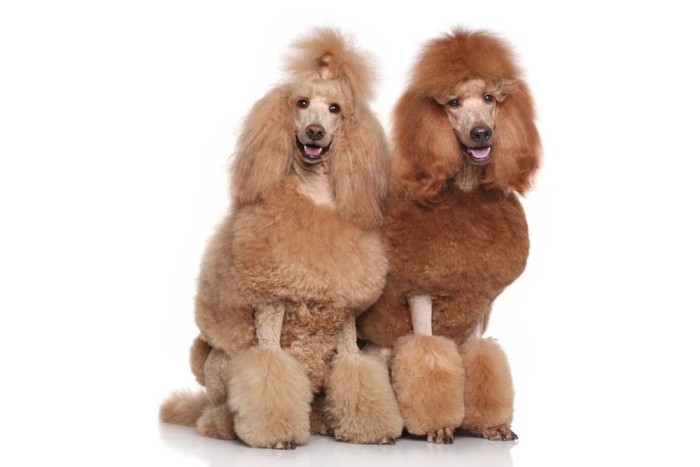
First glance, you may think that this stylish dog breed has the aptitude to serve disabled persons. Standard Poodles are the service dogs for anxiety problems used in psychiatry treatment. The Standard Poodles has the aptitude for any kind of service, but alert and mobility tasks are what it excels. The dog has keen eyes that look for signs and triggers of flashbacks as well as helping its owner cope.
MUST READ: THE BEST FLEA COLLARS FOR DOGS
#2. Golden Retriever

This dog is one of the popular service dogs thanks to its eagerness to please and high intelligence. A Golden Retriever is part of the PTSD service dog breeds that will fit well with veterans suffering from PTSD. The breed mitigates the effects of painful flashbacks by providing emotional support to its owner. Being an alert dog is part of the Golden Retriever's mindset. Also, the Golden Retriever can fetch is owner’s medication.
#3. German Shepherd
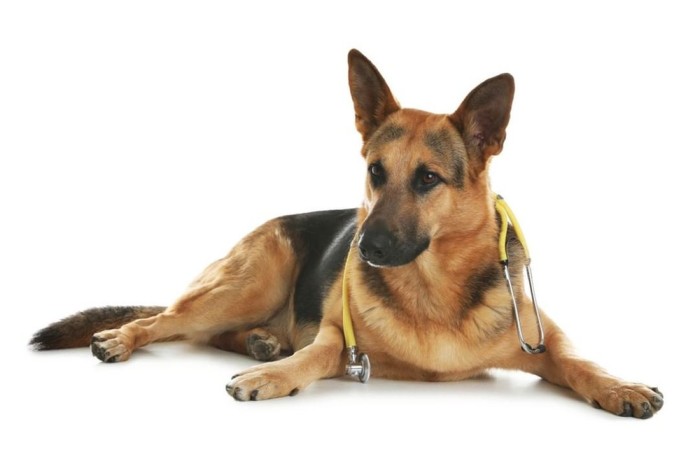
Police service dog work are the things that come to your and other people’s minds when they heard the name “German Shepherd.” Despite being mainly associated with such things, the German Shepherd is also a good service dog. Intelligence, easy to train, well-behaved, strong, and capable of forming strong bonds with their owners are traits that make the dog breed good at its work.
#4. Pitbull
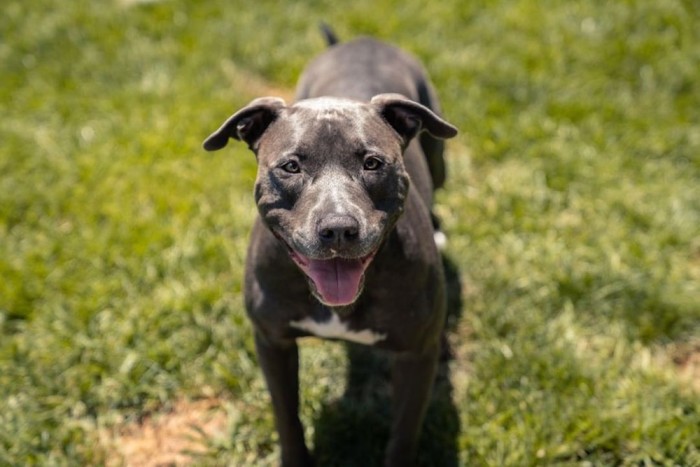
Pitbulls can act as service dogs despite the negative and mistaken perception of the dogs. A well-trained Pitbull can act well-behaved even in a public situation, and they do have gentle as well as loving temperaments. The breed is intelligent, so dog training should be easy and said training instills a strong work drive.
#5. Labrador Retriever

Like the Labrador Retrievers that are friendly, having good-natured personalities, and create strong bonds with their owners as the ideal service dogs. As per their job, Labrador Retrievers can perform a lot of tasks for their owners. The Labrador Retriever has another special trait from other dog breeds; This dog have a soft mouth. Labrador Retrievers grab things with their mouth but done lightly so that they don’t damage the object.
#6. Bernese Mountain
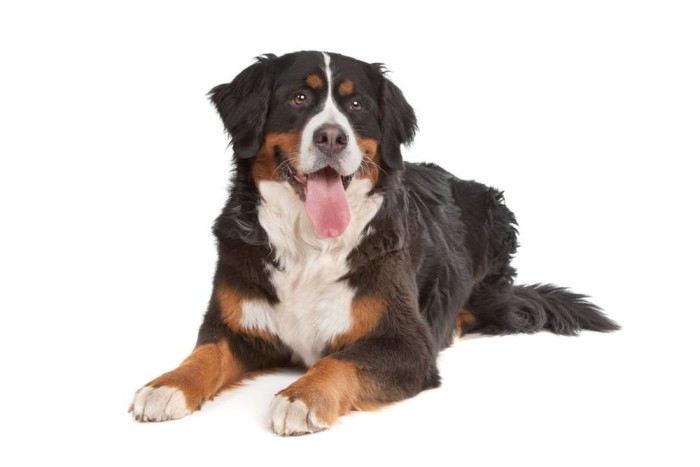
Strong work ethic, intelligence, and friendly personality are the traits of the Bernese Mountain dog breeds that make them suitable for excellent services dogs to help as for people with disabilities. The Bernese dog is intelligent enough to do complex physical tasks, and it's strong as well as big to do them. Just bear in mind that the Bernese is on the dog breeds that are not ideal for non-cold climates or apartment life. read also our list of big fluffy dog breeds
#7. Pomeranian
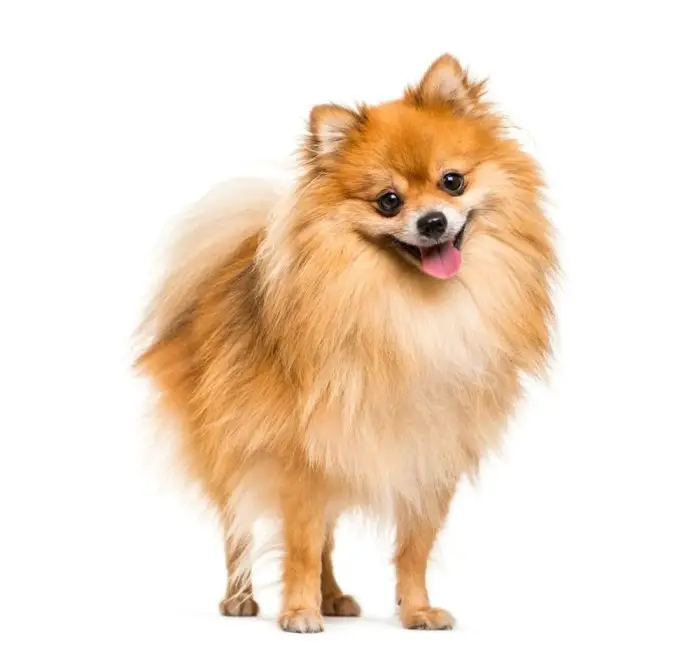
Don't be fooled by the Pomeranian dog‘s small size and its cutesy look; this little fellow can serve you well as a service dog. The Pomeranian may not have the size and strength to help you walk, pull a wheelchair, or keep your balance, but the dog is suited to doing small tasks like carrying a backpack or small pouch. Also, do take note that this breed and makes for a good conversation or socializing starter. make sure yo check our list of dog hair dryer for pomeranian.
#8. Lhasa Apso
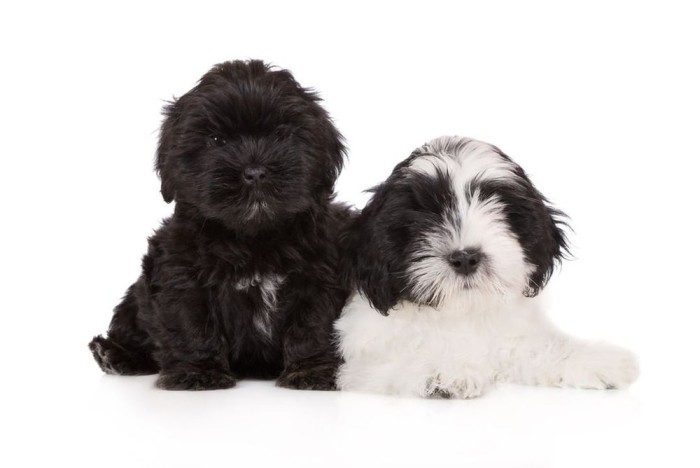
Little cuddy animal is one of the best therapy dogs for handing out love, affection, and comfort to people in schools, hospitals, nursing homes, retirement homes, hospices, disaster areas. These breed of dogs have a sunny disposition that brightens up people, and their cuddy looks make you want to pet or hug the little guy. This dog can recognize different moods in humans (especially their patients) and react with the right kind of gesture.
#9. Boxer

As service dogs, the Boxer is one canine that is not often used by humans, but be assured that this dog has characteristics needed for the job. The breed’s physique is large enough to do a physical task, and at the same time, it's small enough to move through crowded places. The Boxer is a good-natured service dog that is friendly with kids and adults as well as having high energy. You will have to give the Boxer some exercise every now and then. Also, the Boxer is one of the canine breeds that adapt to apartments or small homes.
#10. Cavalier King Charles Spaniel

The Person who has PTSD can mentally benefit from the service of a cute and cuddly dog Cavalier King Charles Spaniel. For some people, the Cavalier King Charles Spaniel may not fit the mold of being a service dog, but the canine is effective when it comes to PTSD therapy.
#11. Border Collie
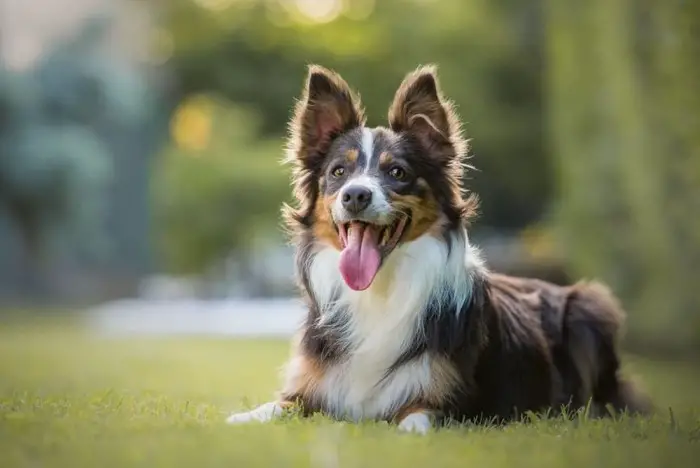
Border Collie counts itself as one of the smartest service dog breeds in the world. Training a Border Collie is easy (coupled with some positive encouragement and incentives), and it's a dog breed that likes having a job to do. Border Collies have lots of high energy, so you need to give it some exercises and mental stimulation through interactive toys. The breed is good with children though due to their instincts, Border Collies may occasionally try to "herd" them, thus knocking them over. Lastly, Border Collies are excellent search and rescue dogs.
#12. Cocker Spaniel
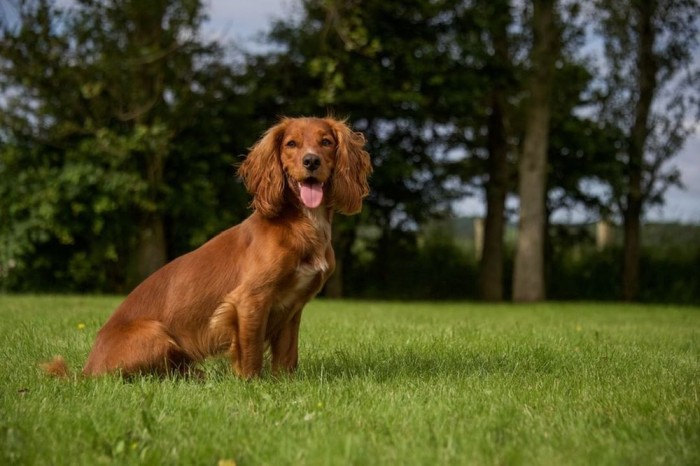
People who have Obsessive-Compulsive Disorder or OCD, they need a service dog like a Cocker Spaniel that interrupts their self-harming behavior. Despite its small size, the Cocker Spaniel dog can easily detect its owner’s subtle movements caused by OSD and will respond with great insistence. Should the owner start showing “pathological grooming” symptoms and start to pull or pick at their hair and skin, this adorable service dog will stop it.
Conclusion
If you want a specific service dog for pet companionship, You only need to look in certified breeders for this or that dog breed. On the other hand, if you do need a service dog for assistance, you will have to take another route.You can train your own service dog, but this option may not be from some people.
You can try going to an organization that provides support dogs though you may have to wait a year or two before getting one. Lastly, you can also find service dogs for sale with the added benefit that these canines have the experience.
Therapy dog breeds that deal with emotional problems require an ESA (emotional support animal) letter issued by a mental health professional that is duly licensed. This simple process ensures that the best therapy dogs will be given to the disabled Person requesting for an emotional service dog.
Regardless of what your reasons for getting service dogs to be regular house pets or emotional support animals, be assured that you and your family are getting a dog that will be your friend as well helper for life.
More Adorable Dogs List
Great article. This part really interested me:
“People who have Obsessive-Compulsive Disorder or OCD, they need a service dog like a Cocker Spaniel that interrupts their self-harming behavior. Despite its small size, the Cocker Spaniel dog can easily detect its owner’s subtle movements caused by OSD and will respond with great insistence. Should the owner start showing “pathological grooming” symptoms and start to pull or pick at their hair and skin, this adorable service dog will stop it”
I wonder if the dog could also help in the case of misophonia disorder, … I will delve into the question!
Thanks again for your article!
If you don’t know what’s misophonia, you can check here on benfeel.com : https://benfeel.com/en/blog/misophonia-definition-causes-and-symptoms-2020/